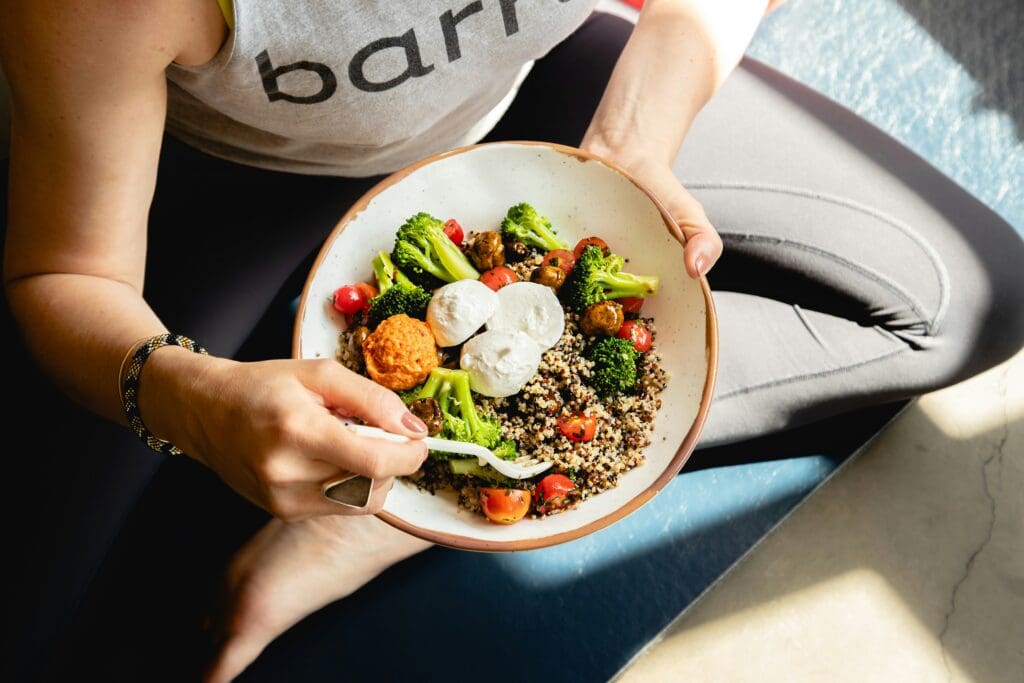Separating Fact from Fiction in a World of Bold Headlines
In today’s fast-paced media environment, headlines promising “miracle” diets or demonising everyday foods are difficult to avoid. Whether you’re scrolling through social media, tuning in to morning television, or browsing your favourite news sites, it seems that nutrition advice is everywhere, and it often comes with a dose of drama. For consumers seeking reliable guidance on what to eat, the challenge lies in distinguishing between sensationalism and genuine science. Nutrition information can be distorted, which is why sensationalism is so prevalent, so how can you become savvier at spotting trustworthy advice?
Why Sensationalism Sells
The British public is no stranger to eye-catching headlines. “Bread Will Make You Fat!”, “The Secret Superfood That Burns Belly Fat!”, or “Cutting Out Sugar Cures Cancer!” are just a few examples that have graced tabloid covers or gone viral online. Such headlines grab attention, generate clicks, and are easy to share. Unfortunately, they often simplify, misinterpret, or exaggerate the underlying science.
Media outlets have a vested interest in engagement. In a world of 24-hour news cycles and content algorithms, stories that evoke strong emotions, such as hope, fear, or outrage, are more likely to be read and discussed. Nutrition, being personal and fundamental to our well-being, is a perfect subject for such treatment.
Science Versus Sensationalism: A UK Perspective
Scientific research rarely offers simple, sweeping answers. Nutrition science, in particular, is a nuanced and constantly evolving field. Studies often result in incremental progress rather than immediate breakthroughs. However, this complexity doesn’t fit well into catchy headlines or social media snippets.
For example, let’s consider the humble egg. In the UK, eggs have gone from being breakfast staples to objects of suspicion, and then back again. In the 1980s and 1990s, the slogan “Eggs raise cholesterol!” led to a decline in egg consumption. Recent research, however, suggests that for most people, eggs are a nutritious and affordable source of protein and other essential nutrients, with a minimal impact on blood cholesterol levels for the average healthy adult. The UK’s NHS now regards eggs as a healthy option for most people, provided they are included as part of a balanced diet.
Similarly, the “clean eating” movement, popularised by influencers and celebrity chefs, has encouraged the rejection of entire food groups, like dairy or gluten, without medical necessity. While some individuals do suffer from allergies or intolerances, for most, there’s no evidence that complete avoidance offers health benefits. Yet, the appeal of “detoxifying” or “purifying” your diet is a strong marketing tactic, often not backed by solid scientific evidence.
Case Studies: When Hype Outpaces Evidence
Coconut Oil: The Superfood That Wasn’t
In 2016, coconut oil was hailed in UK media as a superfood, praised for everything from enhancing brain function to speeding up weight loss. Supermarkets lined their shelves with coconut-based yoghurts, smoothies, and snacks. The reality is much less sensational: while coconut oil can be used in moderation, it is high in saturated fat. The British Heart Foundation and the NHS both warn against overconsumption because the evidence supporting its health benefits is limited and often taken out of context.
The Gluten-Free Craze
Gluten-free foods have become a thriving market in the UK, with many individuals choosing these products without a formal diagnosis of coeliac disease or gluten sensitivity. Headlines have occasionally implied that gluten is inherently harmful to everyone. Still, scientific consensus offers a different perspective: for most people, gluten is harmless, and eliminating it can result in a less diverse and potentially less nutritious diet.
Red Wine: The French Paradox
A steady stream of articles has praised the benefits of red wine, associating its consumption with heart health. “A glass of red wine a day keeps the doctor away,” some headlines claim. The reality is more complex: while some studies indicate modest cardiovascular benefits, NHS guidelines are clear that alcohol should be consumed within recommended limits, and that the benefits are not sufficient to outweigh the risks, including cancer and liver damage.
How Sensationalism Distorts the Science
Sensationalised nutrition stories often originate from early-stage research or animal studies. The leap from “a compound in broccoli slowed tumour growth in mice” to “Broccoli cures cancer!” is vast and misleading. Human nutrition is a complex field, and its real-world effects are influenced by numerous factors, including genetics, lifestyle, and overall dietary habits.
Furthermore, nutrition research often depends on observational studies, which can identify correlations but not establish cause and effect. For instance, people who consume more fruits and vegetables tend to be healthier, but this does not mean that eating an extra apple daily will ensure good health. These subtleties are often lost when translating research findings from papers to a news report’s headline.
How to Spot Reliable Nutrition Advice
- Look for trusted sources. The NHS, British Dietetic Association, and British Heart Foundation are reputable organisations that base their recommendations on the best available evidence.
- Be wary of “miracle” claims. If a food is promoted as a cure-all or a villain, be sceptical. Science rarely deals in absolutes.
- Check for context. Does the article explain whether the research was conducted in humans, and if so, for how long and with how many participants?
- Consider the overall diet. A single food or nutrient rarely has a dramatic impact on health in isolation. It’s your overall pattern of eating that matters most.
- Watch for conflicts of interest. Is the advice coming from someone selling a product or supplement?
The next time you read a headline about a “deadly” food or a “must-try” diet, take a moment to dig deeper. Sensationalism may sell papers or attract clicks, but it does little to advance our understanding of nutrition or to support good health. By approaching food news with a critical eye and favouring evidence-based advice from trusted UK sources, you can cut through the noise and make choices that truly nourish.
In the world of nutrition, the truth is rarely as dramatic as the headlines, but it’s a lot more reliable.


